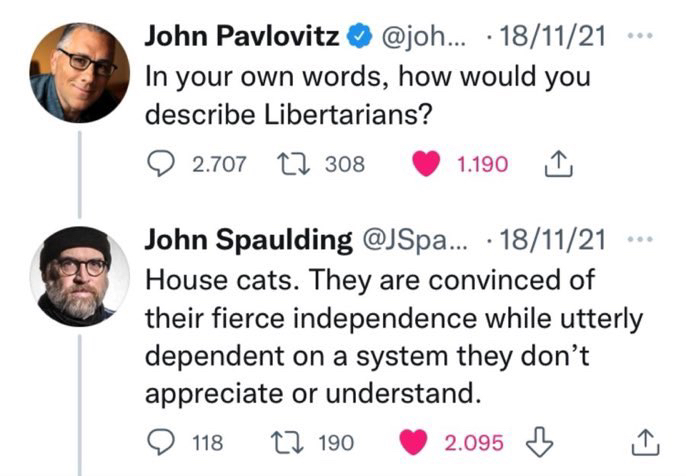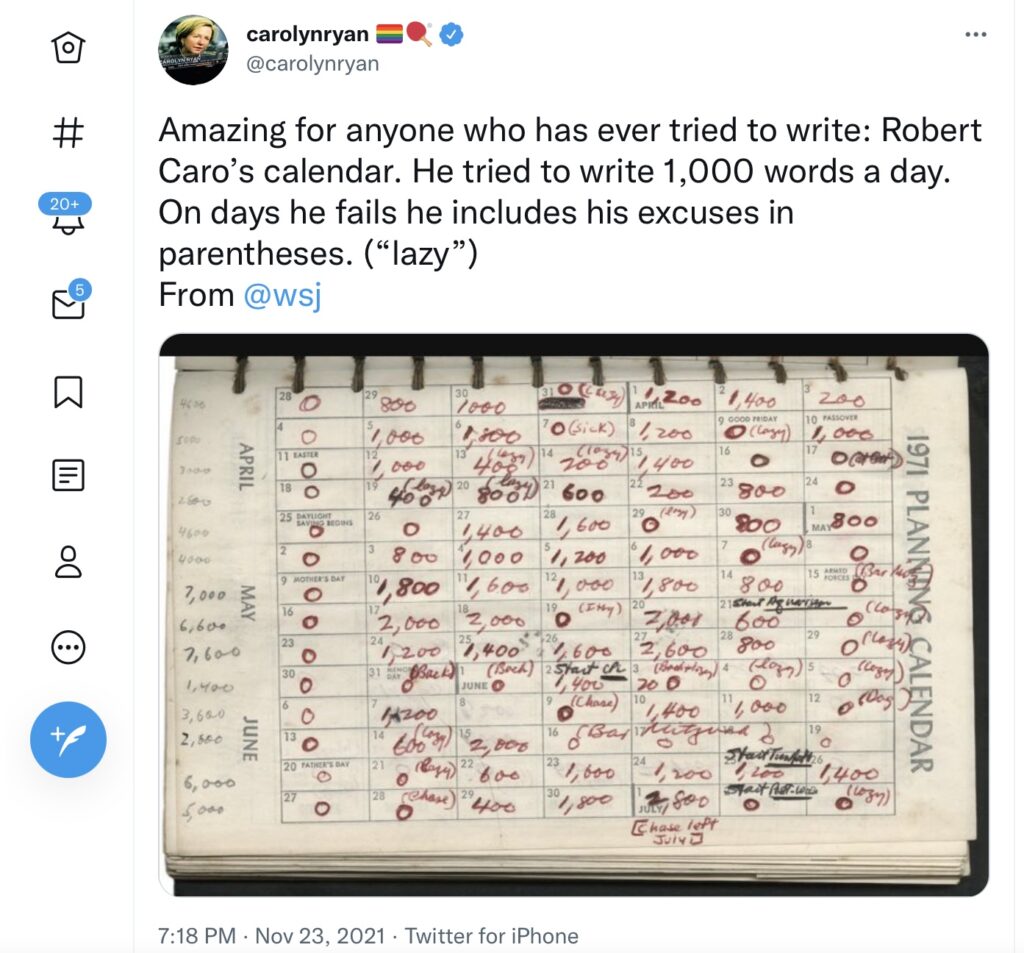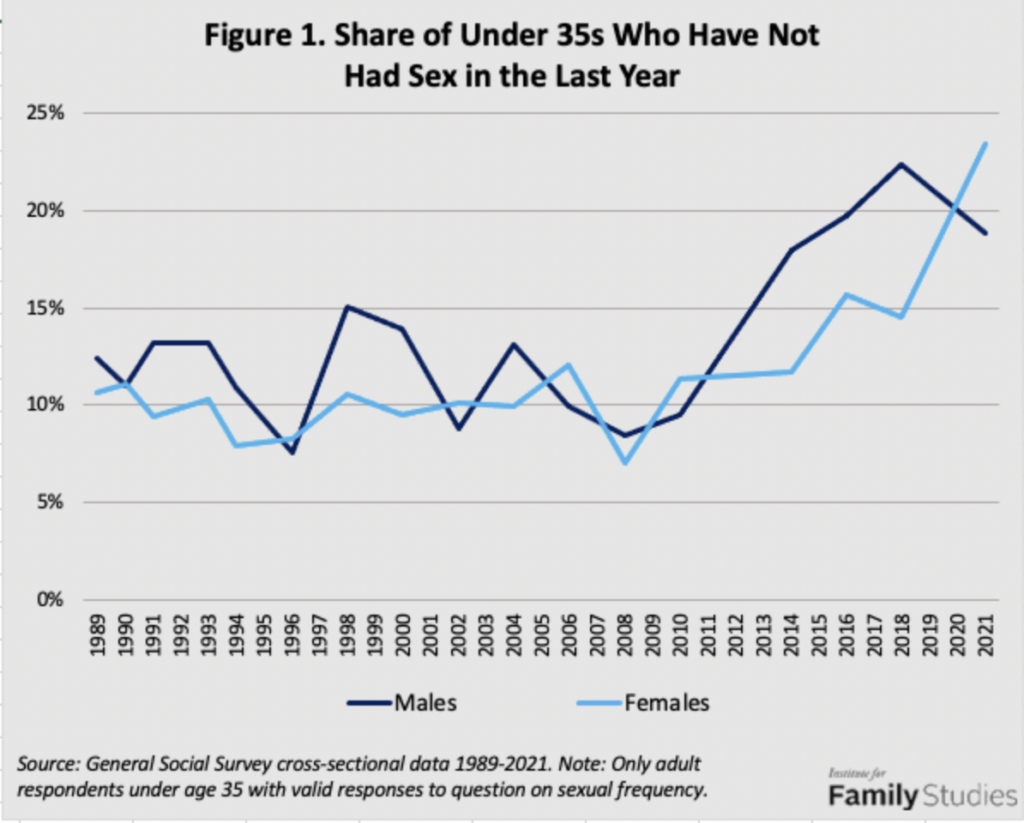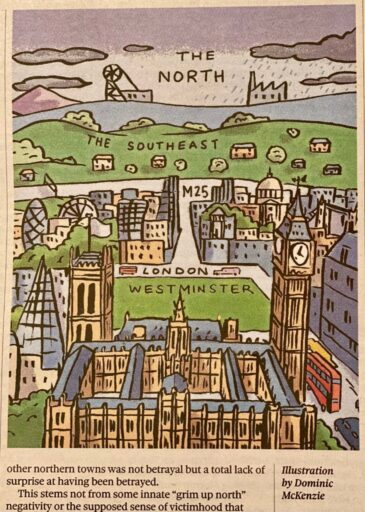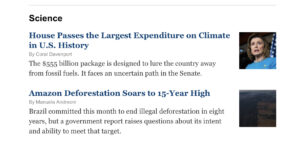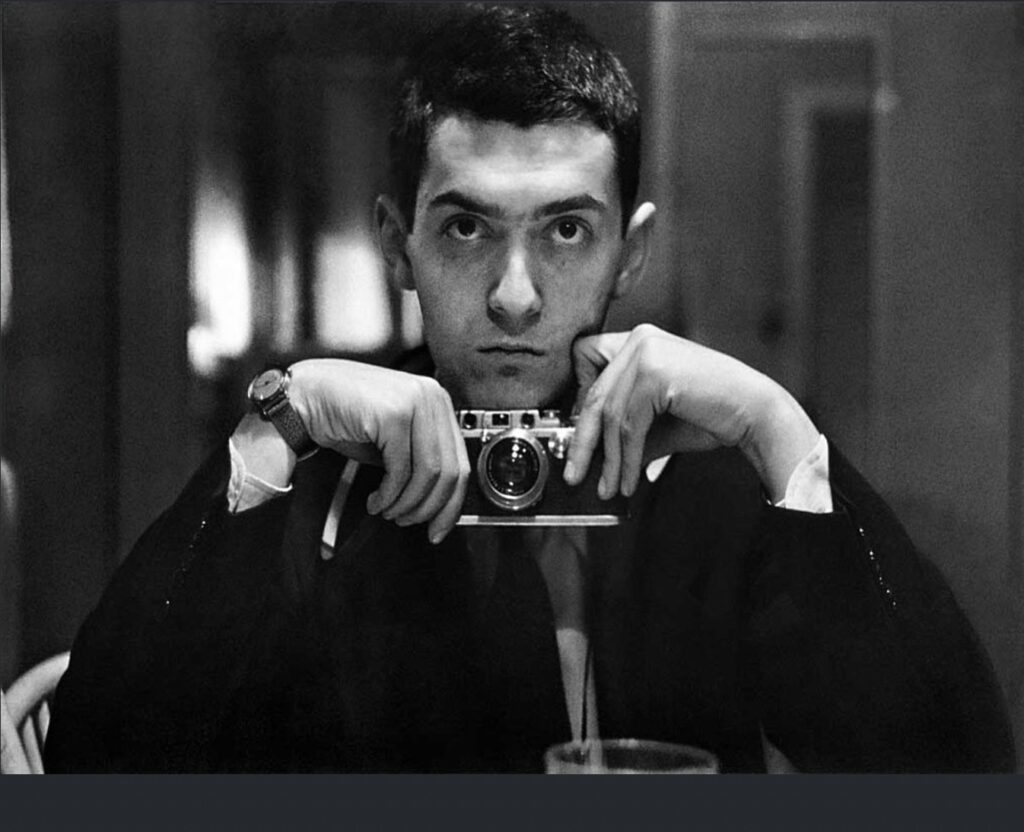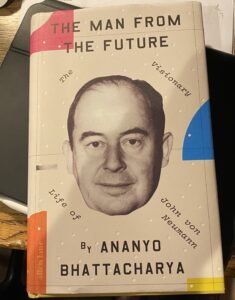Mellow fruitfulness

Our amazing crab-apple tree. Year after year it produces this abundance. You can make crab-apple jelly from the fruit, but it’s a finicky business, so we generally leave the fruit on the tree and when the weather gets really cold the birds pick it clean.
Reconsidering Tony Blair
Yesterday’s piece on Blair prompted a few interesting emails, for which many thanks. I was particularly struck by something Charles Arthur (Whom God Preserve) wrote:
Blair’s success did owe something, in retrospect, to John Major, who despite having mortars lobbed at him by the IRA while having a Cabinet meeting in Downing St did actually open up clandestine negotiations with them, which then made Blair’s job (well, Mo Mowlam’s job) at least a little easier.
None of which tempers my admiration for Blair – but until it was all pointed out to me (for it’s quite an improbably timeline to get from elected to GFA in one year) I didn’t think Major had achieved anything at all, apart from being a Spitting Image puppet.
Yep. I’ve always felt that Major was a much-underestimated figure. I met him once, when I was given the task (by my university) of introducing him to the World Wide Web. He struck me as one of the few normal people in politics — an impression that was confirmed when, on the day he was ejected from office, he went calmly to The Oval to watch cricket.
My friend and mentor, the late David Williams, once told me a nice story about Major, whom he met when he David was Vice-Chancellor of Cambridge University and Major was Chancellor of the Exchequer. Major had done his homework. When the two were introduced at lunch, he said that he understood that the Cambridge Vice-Chancellor had a specially-reserved rack for his bicycle outside his office. He hoped, he said, that this had been logged in his tax return as a “benefit in kind”. David, who was a distinguished legal scholar as well as a QC, pointed out that it had no commercial value and was therefore exempt.
Quote of the Day
“I don’t mind what the opposition say of me, so long as they don’t tell the truth about me; but when they descend to telling the truth about me, I consider that that is taking an unfair advantage.”
Musical alternative to the morning’s radio news
What Sweeter Music | John Rutter | Choir of King’s College Cambridge | 2008
Link
For Hap and CD, who will be in Cambridge today.
Long Read of the Day
As I watch the slow, and I fear inexorable, decay of the American republic, I’m struck by a memory of something I read way back in the Summer of 2016. At the time we were on holiday in Provence (which is where we used to be every summer in pre-pandemic times), and one day I read a remarkable piece of reportage by Dave Eggars which made me sit up and think: Jesus! Trump could make it to the presidency!.
The piece was a gripping account of a day Eggars had spent at a Trump rally in California on June 1st in which he “spoke to and overheard dozens of the rally’s attendees, not as a journalist but as one ticketholder to another”.
I was dressed in jeans, workboots and wore a Nascar hat – and found every last one of the attendees to be genial, polite and, with a few notable exceptions, their opinions to be within the realm of reasonable. The rally was as peaceful and patriotic as a Fourth of July picnic.
And yet I came away with a host of new questions and concerns. Among them: why is it that the song Trump’s campaign uses to mark his arrival and departure is Elton John’s “Tiny Dancer?” Is it more troubling, or less troubling, knowing that no one in the audience really cares what he says? And could it be that because Trump’s supporters are not all drawn from the lunatic fringe, but in fact represent a broad cross-section of regular people, and far more women than would seem possible or rational, that he could actually win?
The passage in the piece that really struck home was this one:
Yes, they were generally white, but there were also African-Americans and plenty of Latinos. A startling number of Asian-Americans, Pacific Islanders and South Asian-Americans. There were the expected Harley-Davidson riders in black vests, but there were also a remarkable number of people with disabilities. There were families, professional types, veterans and one Filipino-American navy officer in full dress whites. It was not the homogeneous sea of angry white men that one might have expected. Instead, it appeared to be a skewed but not wholly unrepresentative cross-section of the people of northern California.
After reading that, I found myself distressed by the thought that, yes, Trump could indeed win and spent a couple of days trying to write an essay that would make sense of that thought. Then, remembering that I was supposed to be on holiday, I looked up Nate Silver’s tracking of the opinion-poll data in the New York Times, noted the derisory probability he attached to Trump’s chances of victory, and went for a swim in the pool.
But, as we know, Eggars — with his writer’s finely-tuned antenna — was on the money, and Silver wasn’t.
This is all by way of explaining why I’ve been struck by an analogous piece of reportage by David Brooks. Its title is “The Terrifying Future of the American Right”, and it’s the most illuminating thing I’ve read in ages about what’s happening on the right-wing of US politics.
The piece is an account of his thoughts on attending the National Conservatism Conference in Florida. When he arrived, he reported, he confessed to being
a little concerned I’d get heckled in the hallways, or be subjected to the verbal abuse I occasionally get from Trump supporters. Judging by their rhetoric, after all, these are the fire-breathers, the hard-liners, the intellectual sharp edge of the American right.
But everyone was charming! I hung around the bar watching football each night, saw old conservative friends, and met lots of new ones, and I enjoyed them all. This is the intellectual wing of the emerging right.
Brooks listened while his old friend Rod Dreher of The American Conservative argued that, because the left controls the commanding heights of the culture and the economy, the only institution the right has a shot at influencing is the state. In these circumstances the right has to use state power to promote its values. “We need to quit being satisfied with owning the libs, and save our country,” Dreher said. “We need to unapologetically embrace the use of state power.”
This is where Viktor Orbán comes in. It was Dreher who prompted Carlson’s controversial trip to Hungary last summer, and Hungarians were a strong presence at the National Conservatism Conference. Orbán, in Dreher’s view, understands the civilizational stakes of the culture war; he has, for instance, used the power of the state to limit how much transgenderism can be taught to children in schools. “Our team talks incessantly about how horrible wokeness is,” Dreher said at the conference. “Orbán actually does something about it.”
This, says Brooks, is national conservatism pursued to its logical conclusion: using state power to break up and humble the big corporations and to push back against coastal cultural values.
The culture war merges with the economic-class war—and a new right emerges in which an intellectual cadre, the national conservatives, rallies the proletarian masses against the cultural/corporate elites. All your grandparents’ political categories get scrambled along the way.
Perhaps you can see why I found this illuminating. But I might have got it wrong. See what you make of it.
My commonplace booklet
Nice piece by Tayo Bero pointing out that students at Harvard, a famous hedge fund with a nice university attached, apparently aren’t that smart after all. A whopping 43% of its white students weren’t admitted on merit. It’s basically “affirmative action for the rich and privileged”.
In reality, 43% of Harvard’s white students are either recruited athletes, legacy students, on the dean’s interest list (meaning their parents have donated to the school) or children of faculty and staff (students admitted based on these criteria are referred to as ‘ALDCs’, which stands for ‘athletes’, ‘legacies’, ‘dean’s interest list’ and ‘children’ of Harvard employees). The kicker? Roughly three-quarters of these applicants would have been rejected if it weren’t for having rich or Harvard-connected parents or being an athlete.
This Blog is also available as a daily email. If you think that might suit you better, why not subscribe? One email a day, Monday through Friday, delivered to your inbox. It’s free, and you can always unsubscribe if you conclude your inbox is full enough already!

